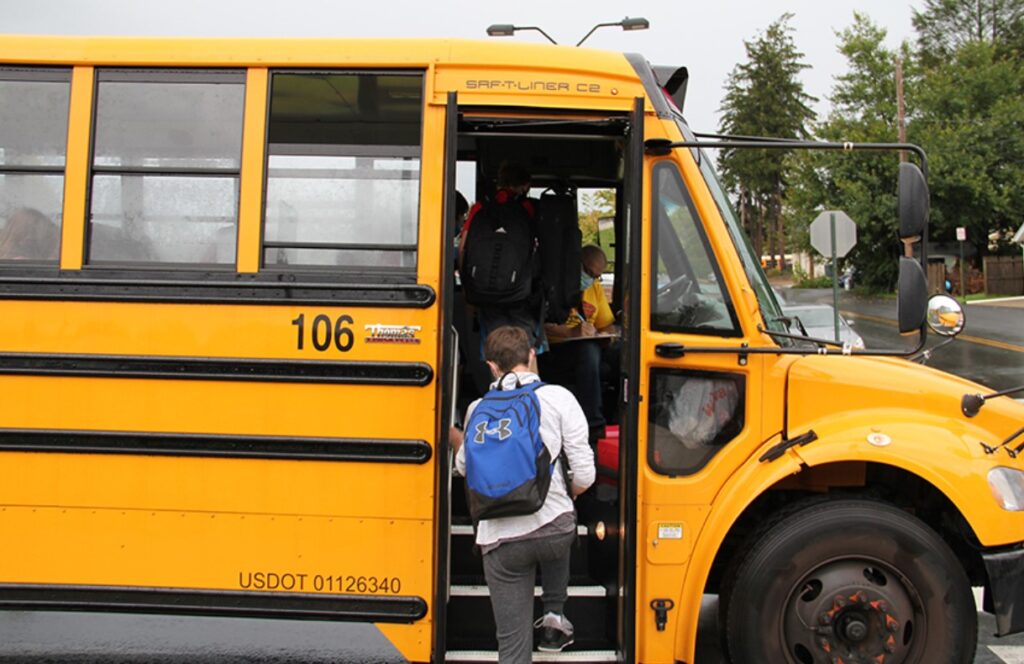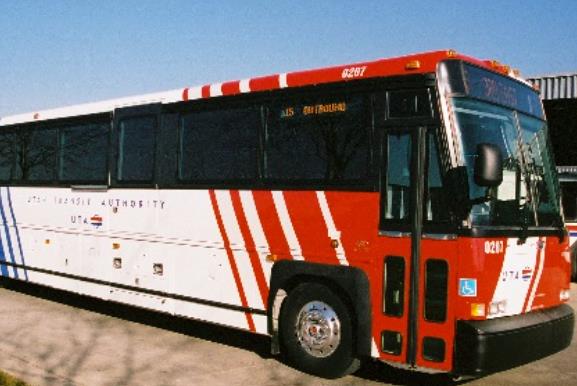Can A Bus Driver Refuse To Let You On? Answered
Public transportation is a vital part of urban life, with buses playing a crucial role. However, passengers often wonder, Can A Bus Driver Refuse To Let You On? The answer is nuanced and depends on various factors, including the driver’s discretion, safety concerns, and specific regulations.
Key Takeaways
- Bus drivers have the authority to refuse passengers under certain conditions.
- Safety concerns are a primary reason for refusal.
- Rules vary based on location and bus company policies.
- Passenger behavior can influence a driver’s decision.
- Legal ramifications exist for unjust refusal.
Can A Bus Driver Refuse To Let You On?
Yes, a bus driver can refuse to let a passenger on, but this is generally in specific circumstances. The primary reason for refusal is typically related to passenger safety, the safety of others on the bus, or legal requirements.

Safety Concerns
- Overcrowding: For safety reasons, drivers may refuse passengers when a bus is already at full capacity.
- Hazardous Materials: Carrying hazardous materials poses a risk to everyone on board.
- Aggressive Behavior: Drivers are likely to deny entry to individuals displaying threatening or aggressive behavior.
Legal and Policy Considerations
- Fare Evasion: Refusal can occur if a passenger does not pay the fare or cannot show a valid ticket.
- Enforcement of Rules: Drivers enforce company policies, which may include dress codes or prohibitions on eating and drinking.
Rights and Responsibilities
Both drivers and passengers have rights and responsibilities. Misunderstandings about these can lead to conflicts.
Passenger Rights
- Fair Treatment: Passengers have the right to be treated fairly and without discrimination.
- Appeal Process: There should be a clear process for passengers to appeal a refusal.
Driver’s Authority
- Discretion: Drivers have the discretion to refuse passengers based on safety and policy.
- Responsibility: They must balance this authority with a responsibility to serve the public.
Impact on Passengers
Being denied boarding can significantly impact passengers, especially those reliant on public transportation.

Consequences for Passengers
- Delays: Refusal can lead to missed appointments or work.
- Accessibility Issues: For those with limited mobility options, refusal can pose significant challenges.
Case Studies and Precedents
Examining past incidents where passengers were refused can provide insight into how these situations are handled.
Notable Incidents
- Case 1: [Example of an incident where safety was a concern]
- Case 2: [Example of a refusal based on policy enforcement]
Legal Framework
The legal landscape surrounding the refusal of passengers is complex and varies by region.
Laws and Regulations
- Local Laws: Specific local or state laws may govern public transportation.
- Company Policies: These policies are often in line with legal requirements but can vary.
Is It Legal For School Bus Drivers To Deny Students?
School bus drivers have the authority to deny students under certain circumstances, primarily for safety reasons. This includes situations where a student is behaving aggressively, posing a threat to others, or blatantly violating school district policies.

The legal backing for this comes from the school district’s responsibility to ensure the safety of all students on board. Each school district has its own set of rules and guidelines that govern student conduct on school buses.
These rules are often detailed in student handbooks or district transportation policies. In cases of denial, parents are usually notified, and alternative disciplinary actions may be considered.
Can A Bus Driver Refuse A Passenger?
Yes, a bus driver can refuse a passenger, but such refusals are generally bound by the transportation company’s policies and local laws.
The most common reasons for refusal include safety concerns like overcrowding, passengers exhibiting threatening or aggressive behavior, or non-compliance with fare requirements.
Drivers also enforce specific company or city policies, such as regulations against eating, drinking, or the use of tobacco products on the bus.
It’s important to note that while drivers have the authority to refuse passengers, they must also adhere to anti-discrimination laws, ensuring that refusals are not based on race, gender, disability, or other protected characteristics.
Can Bus Drivers Let People On For Free?
Typically, bus drivers are not permitted to let people on for free as this would violate fare collection policies set by the transit authority or transportation company.

Fare evasion can lead to revenue loss and may be unfair to other paying passengers. However, there are exceptions. Some transit systems have specific programs or days where transportation is free to all passengers.
Additionally, drivers may have some discretion during emergencies or out of humanitarian concern, but these instances are rare and usually require subsequent justification from their superiors.
Can You Get Kicked Off The Bus For Cursing?
Yes, passengers can be kicked off the bus for cursing if it violates the conduct policies set by the transportation authority. Most transit systems have rules that require passengers to maintain a certain level of decorum, which includes not using offensive language.
This is to ensure a safe and comfortable environment for all passengers. The enforcement of these policies is at the discretion of the bus driver or transit personnel.
Continued or severe disruptive behavior, including cursing, can result in being asked to leave the bus and, in some cases, may lead to a temporary ban from the service.
Conclusion
In conclusion, while a bus driver can refuse to let you on under specific circumstances, this power comes with responsibilities. Understanding the balance between passenger rights and the driver’s authority is crucial in navigating these situations. The policies and laws in place aim to ensure safety and fairness, though they can lead to complex scenarios.
Top FAQ’s
What are the consequences for a bus driver who unjustly refuses a passenger?
A bus driver who unjustly refuses a passenger may face disciplinary action from their employer, which can include retraining, suspension, or even termination, depending on the severity and circumstances of the incident.
Can a bus driver refuse a passenger for carrying large items or luggage?
Passengers may be refused if their luggage or items pose a safety risk or significantly obstruct the aisle or seats. However, this is usually at the driver’s discretion and based on the bus’s capacity at that time.
How do bus drivers handle situations where a passenger cannot pay the fare?
Policies for handling passengers who cannot pay the fare vary by company. Some drivers may refuse entry, while others might allow the passenger to ride. Many bus services have specific guidelines for these situations.
Can a bus driver refuse entry based on a passenger’s appearance or clothing?
Refusal based on appearance or clothing can only occur if the passenger violates a specific dress code policy of the bus company. Refusing someone solely based on their appearance, which doesn’t violate any policy, can be deemed discriminatory.

Welcome to the exhilarating world of Matt Rex, a professional car racer turned renowned vehicle enthusiast. Immerse yourself in his captivating blog as he shares heart-pounding adventures, expert reviews, and valuable insights on cars, trucks, jets, and more. Fuel your passion for speed and discover the beauty of vehicles through Matt’s engaging stories and meticulous expertise. Join the ever-growing community of enthusiasts who find inspiration and expert advice in Matt Rex’s blog—a digital hub where the thrill of speed meets the pursuit of knowledge.







